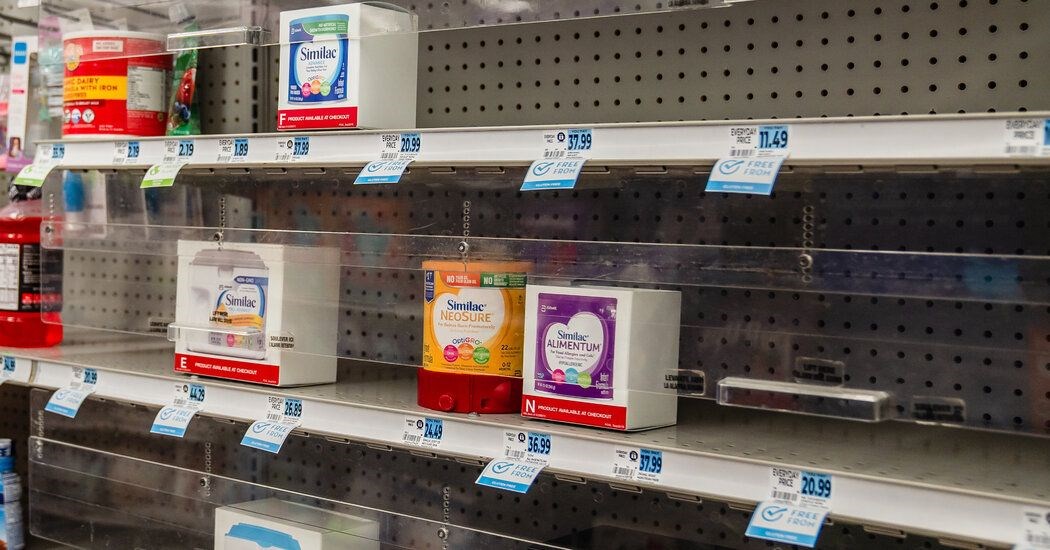House Democrats tackle baby formula shortage with $28 mln bill
The US administration is addressing the baby formula shortage with a funding bill after being criticized for funding Ukraine while its people need aid.
-

House Democrats address baby formula shortage with a $28M bill.
House Democrats proposed an emergency $28 million bill on Tuesday to address the baby formula shortage in the country.
The bill aims to provide the FDA with funds to increase its staff, aiming to help inspect baby formula before it arrives in stores and prepare for potential future shortages.
After Abbott Nutrition recalled some of its products in February, the United States began facing a nationwide baby formula shortage.
The recall happened after federal officials reported that four babies suffered bacterial infections from the baby formula made at Abbott's factory in Sturgis, Michigan.
The new bill
The House Democrats' new bill, ‘Infant Formula Supplemental Appropriations Act, 2022, aims "to address the shortage of infant formula and certain medical foods in the United States."
The legislation reports that the act will also look "to prevent future shortages, including such steps as may be necessary to prevent fraudulent products from entering the United States market."
They're trying to highlight that “the stories of mothers and fathers struggling to find formula and the images of empty store shelves are heartbreaking,” said Rosa DeLauro, chair of the House Appropriations Committee in a statement.
“Parents and caretakers across the country cannot wait — they need our support now. This bill takes important steps to restore supply safely and securely," she added.
Abbott Nutrition to reopen
Abbott Nutrition and the FDA reached an agreement to reopen Abbott's Michigan site, paving the way for an increased baby formula supply.
However, it will take around six to eight weeks before the baby formula can make its way onto shelves and Abbott will need to meet FDA standards to keep its facility open.
The company will also have to report to the FDA any contaminations found and "conduct a root-cause investigation before resuming production."
Igniting war; a priority?
On the other hand, the US administration received waves of criticism after sending funds of $40 billion to Ukraine, amid a baby formula shortage.
The US Senate overwhelmingly advanced on Monday a package of aid for Ukraine against Russia following an initial procedural vote.
On Thursday, US Republican Senator Rand Paul blocked the passing of the bill by objecting to a request by Senate members to unanimously approve bills with strong bipartisan support to be fast-tracked without debate.
Paul argued that the US has been funding Kiev’s war with borrowed money, which would add to the US' $30 trillion debt, exacerbating the US' crippling inflation crisis. He argues that the American people are already “feeling the pain” of the ongoing economic crisis driven by excessive deficit spending. Furthermore, he adds that Congress continues to deepen the crisis by increasing foreign spending instead.

 3 Min Read
3 Min Read








